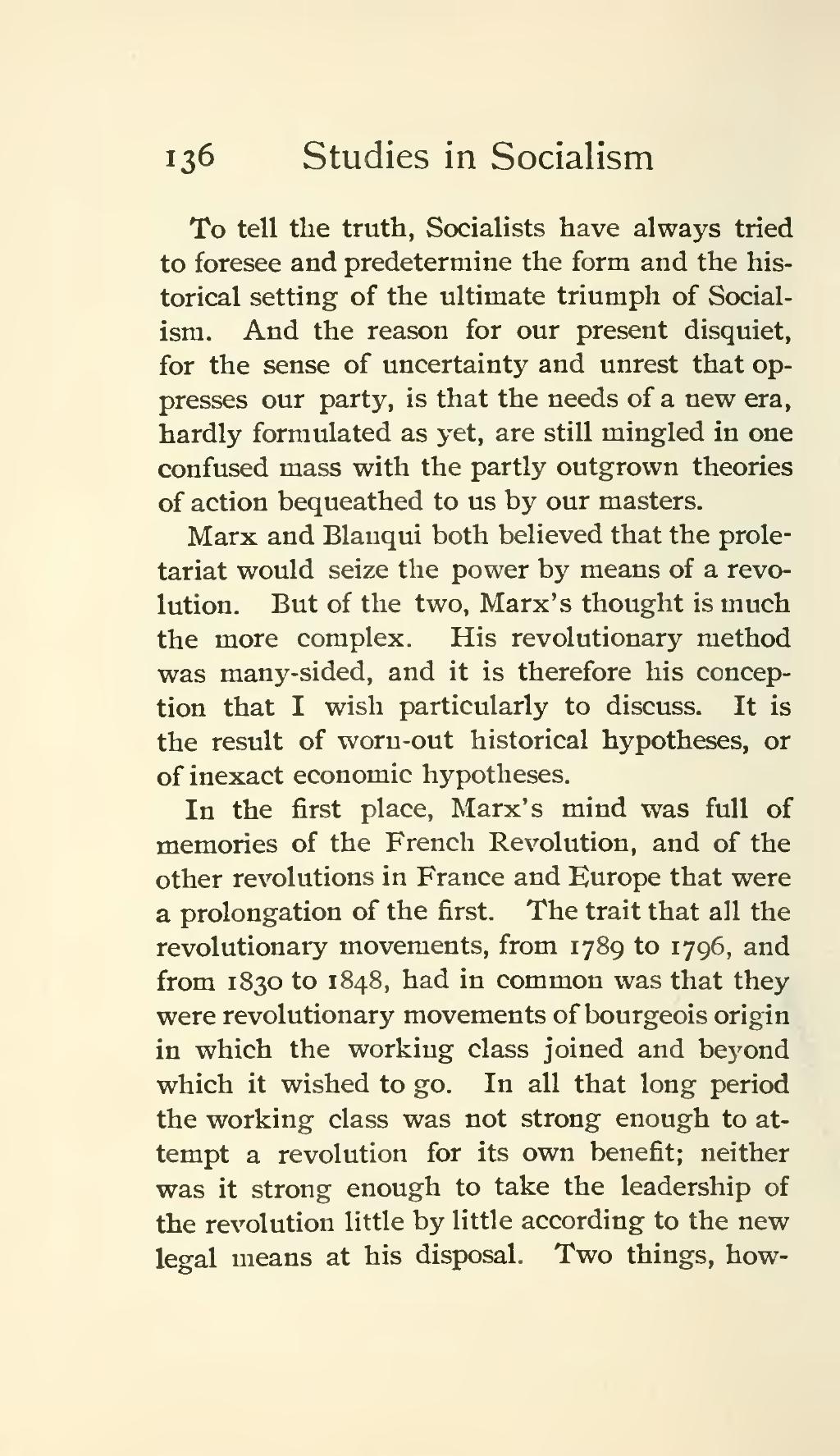To tell the truth, Socialists have always tried to foresee and predetermine the form and the historical setting of the ultimate triumph of Socialism. And the reason for our present disquiet, for the sense of uncertainty and unrest that oppresses our party, is that the needs of a new era, hardly formulated as yet, are still mingled in one confused mass with the partly outgrown theories of action bequeathed to us by our masters.
Marx and Blauqui both believed that the proletariat would seize the power by means of a revolution. But of the two, Marx's thought is much the more complex. His revolutionary method was many-sided, and it is therefore his conception that I wish particularly to discuss. It is the result of worn-out historical hypotheses, or of inexact economic hypotheses.
In the first place, Marx's mind was full of memories of the French Revolution, and of the other revolutions in France and Europe that were a prolongation of the first. The trait that all the revolutionary movements, from 1789 to 1796, and from 1830 to 1848, had in common was that they were revolutionary movements of bourgeois origin in which the working class joined and beyond which it wished to go. In all that long period the working class was not strong enough to attempt a revolution for its own benefit; neither was it strong enough to take the leadership of the revolution little by little according to the new legal means at his disposal. Two things, how-
